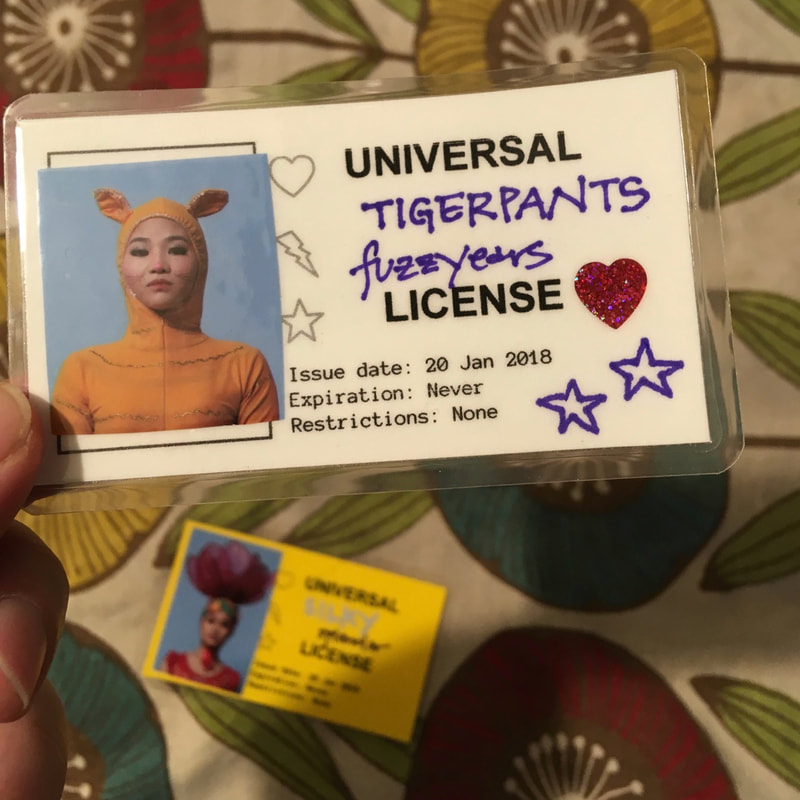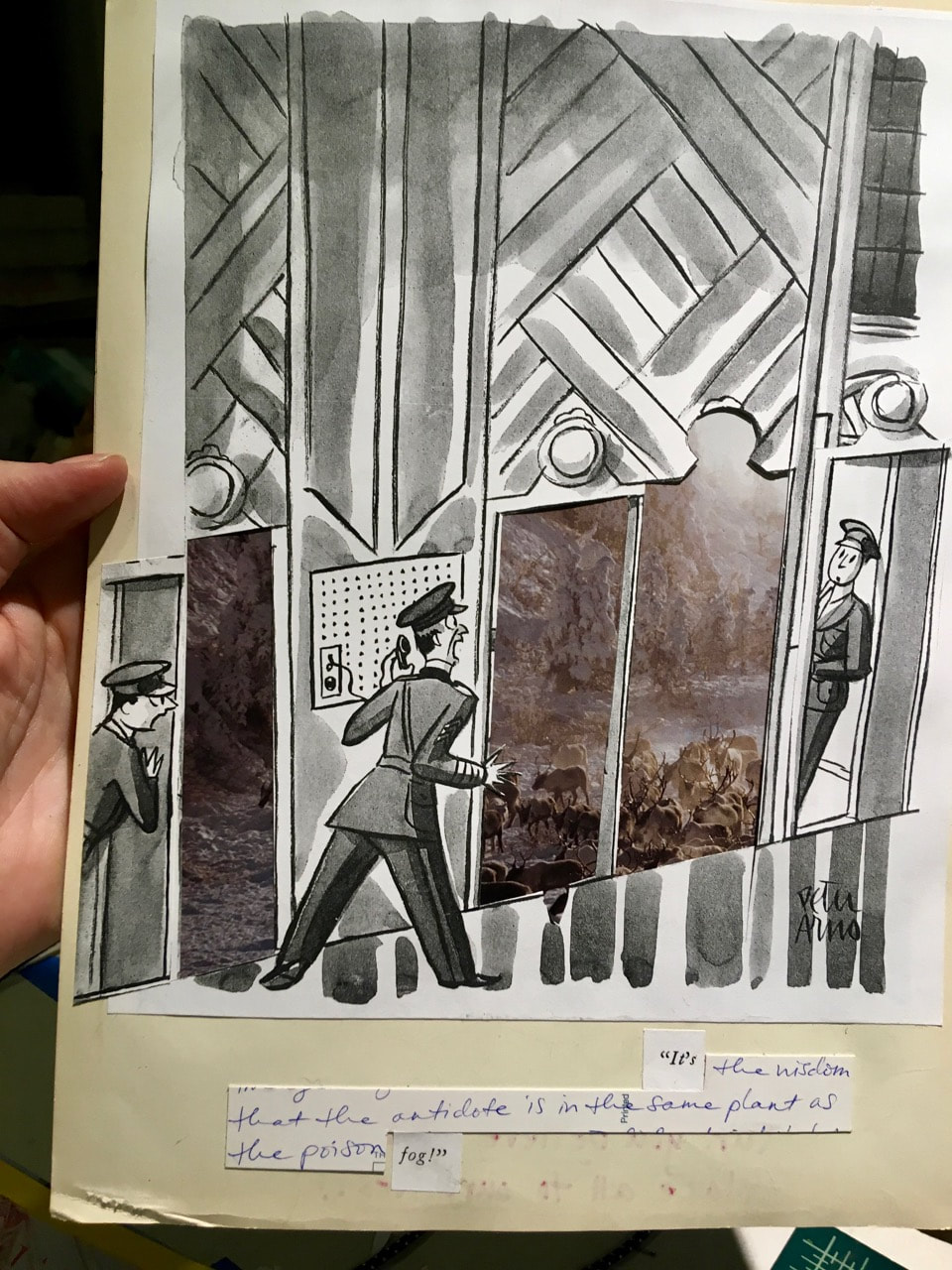|
Lila, divine play, is the gods disporting themselves. Sounds rosy, till it sinks in that we all take turns being the gods, the playthings, the sandbox, and the earthworm suffocated in it.
At a young age, the school playground was one of my least favorite places. Someone was going to comment on my pale-yellow cords. Someone was going to propose kickball or dodgeball or any of the other -balls intended to form young warriors out of suburban children, except the ones like me, whose hand-eye coordination and basic tethering to this planet were somewhat compromised. My true playgrounds were books and drawing, and the dust-motes singing in the sunlit living-room window. I grew up with spacious internal playgrounds, devoid of competition. The playground-lila view of life looks up the skirts and armholes of everyone’s carefully put-together presentations, through the eyeholes and up the nose, but not in a pervy way. It sees how we try to cement things together, and how the sand in the mortar melts away with the next wave, and the next. All winter the snow disintegrates and re-forms day by day: loose, hard, shining, slick, pockmarked, tussocked, speared with branches hurled down by last night’s wind. The snow is the playground and the one being played with, and so am I, and so are the dogs. I am a person who does not believe in removing dog shit from the forest, and so I have become a snow-burial connoisseur. Powder is best and easiest, forming fluffy nests around poops of any size and consistency. Frozen shell is hardest: there’s nothing to dig up and nothing loose to pile on top. In between are endless permutations. Semi-burying turds is a symbolic act, but to me it makes the difference between I care not for this world and I know you’re not here for a turd parade. I never see anyone else’s half- or three-quarter-buried turds in the forest playground. Maybe that’s because it is a successful strategy? People are afraid to come into the woods anyway, shit or no-shit. The playground of the rich and famous. Restaurant-fulls of people in expensive knitwear and carefully coiffed toupées. In such places, a turd on the almond-green carpet might be just the ticket, but I’ve never seen it happen, even when patrons’ malteses and poodles are invited to the feast. The playground of the rich and famous is a famine, a funeral, an upholstered bidet-cover, a bunch of stiff gladioli on a marine teak table. Playground ethics? Coyote thinks that’s hilarious and goes on crunching frozen apples from her orchard perch among branches really too flimsy for her furry weight. On the other hand, Coyote wears her own suit, not strips torn off the bodies of other creatures. If you offered her a mink coat to look more rich and famous on the playground, she’d take a dump on its satin lining and saunter off in search of someone with more personality. Is the world a playground for us? Yes-no. Yes, if we look closely at what moves us, we’ll see it’s often pretty funny and we have more freedom then we thought, to live from heart-spaces deeper than thought. We need to learn to tell the difference between play and toying with. Is that hard to do? Driving to the library I listen to an old Jesus and Mary Chain song about a motorcycle: I’m in love with myself/ there’s nothing left but myself. Black leather boots, speed, racing, and a saw-blade deep inside the guitars. That kind of state doesn’t have any room for other forms of being. It squishes squirrels and isn’t sorry, runs over a woman checking her mailbox, and crashes into a perfectly good oak tree. The playground is the mind. The playground is the body. The playground depends on which permissions we work with. Yes/no/who/why Which skills do we bring and which do we lack? The yoga studio at the gym is an off-duty playground of self-torment and glee. Outside, the machine-folk toughen their buns and arms. In here I roll around like a clunky otter, and a young devotee listens to her guru tell her what to do with every breath, and an older man with a round belly grunts like a condemned prisoner. I swing my sword, go upside down to open what’s closed in my neck. She’s a mermaid whispering prayers under her breath. He knows grace is not really an option, but what he’s got is better than having nothing at all. I am in the locker room after high school swim practice. Young and silly and exhilarated, girls are shedding their suits and prancing around in thongs and bras, discovering the playgrounds of their new bodies. They’ve only had hips and breasts for a year or two, and there is so much for them to investigate in their own butt-dimples and bikini-shaves, new height, new strength, and new insights. They talk to one another packed three to a shower stall, working out the shape of their world and the possibilities they bring to it. Some of the older women, like me, are mostly annoyed with this storm of mermaids. Still, I see their communal rowdiness and wish these young women may have playgrounds without end. Before the internet, there were dragons in all the corners of the maps we could not remember or had never seen in the first place. We would leaf through our atlases and they would tell us where to find bauxite, or bananas, or uranium. They would tell us about arid and forested zones in countries that no longer exist: Rhodesia, Yugoslavia, the German Democratic Republic. Before the internet, there was inertia in print. Before the internet, there was the phone book, and even before that, there was the post coming twice a day. You could write to someone, but it was absurd to think they might respond any sooner than within the week, or the month, depending on how far all that paper had to move, and how much you were willing to pay to move it.
Before the internet, I wrote on bread bags, on postcards, on posters for regional traveling circuses featuring stoic horses. Before the internet, I would buy stamps from stately or ratty government counters, and I would drop cobbled-together collections of paper-scraps into cast-iron mailboxes or inscrutable slots in walls. I would hear them flutter or thunk down, and the rest was a long line of physical operations I more or less implicitly trusted to convey the thoughts I’d written down while sitting at a café table, or on a thin mattress in a room painted half-green, or on a train, or all of the above. Before the internet, if you wanted to find somebody, you really had to work at it. Have you seen Bohemian Rhapsody? Well, the part at the end about trying to track a lover down via a massive directory of all humans bearing the same shared name? That happened to me, too, just like it happened to Freddy Mercury. I met a pair of brothers from Yorkshire in Leh, Ladakh. I liked the older one, and so before they left to go walking over Himalayan passes back down to Manali, I kissed him on the neck. He gave me his mailing address, writing it down in the notebook I used for everything at the time. Then, that very same notebook was stolen off my little fold-down table while I was in the toilet on the Boston to New York train. I couldn’t believe it. Who would steal a stupid notebook? Actually, it was a very smart notebook, and maybe the thief could tell. Or maybe this was a serial journal-thief. Anyway, now I no longer had a way to contact the boy I had played Scrabble with in the adobe apartment of a Buddhist scholar, while Shiite exiles flagellated themselves with chains someplace nearby. I got to London to visit another friend and told her about my problem. Somehow, she knew that the thing to do was to visit the central branch of the post office. Before the internet, looking for someone named James Wilson, without any clear memory of a town name, was nuts. I was a little nuts. I went through dozens of James Wilsons, running my finger down the columns of narrow type. There! Mytholmroyd rang true and I knew I had found him. I took the train from London to Hebden Bridge, then asked the nice lady at the information office. She pointed up the road and offered to keep my backpack safe. Before the internet, people had to trust each other for directions. Before the internet, you took chances with not-knowing. I got on a night flight to Bangkok with only a book to tell me about a place where I might be able to spend the night. I knocked at midnight: yes, there was a room. Before the internet, planning and nailing everything down wasn’t possible and consequently, many more things felt like grace. Is that true? Not really. Thanks to the Internet, I’ve found families willing to put me up in Rhinebeck and Roanoke, and they’ve decided that’s an okay risk to take. What is it then? Maybe it’s that I formed my habits of trusting other people and the wisdom of the road before the internet existed. Then after the internet, I kept going. Maybe. Before the internet I read more, but then again, before the internet I was a Yale undergrad, and reading was basically what I had to do. I painted more. I spent more time feeling lonely. Are those internet-related observations? Maybe they’re just time-of-life related. I waited till I was forty-six years old to get a smart phone, and I still hardly ever use it for the internet. I value being in the space where I am, and most email is basically annoying. I look around and notice someone has stuck a piece of green tape on the back of their jacket. I think about not-much or run around checking things off the made-up list of projects that I generate every day. Before the internet there was TV and that was way worse, until The Simpsons came along and sort of started digesting the medium from the inside out, like a strange and brilliant parasite. Twin Peaks was another parasite, feeding on a different part of the bloated organism that had gotten away with Benson and whatever that show about Cousin Balki was, for so long. Before the internet, we watched truly terrible TV. Now we still watch pointless things, but they’re often a lot shorter, so we still have time for more. Before the internet, mail-order was just that: you would pick the thing out, mail back the order form, and then after a while, the thing would arrive, only browner and larger than you’d hoped. Or, more often, you would go to The Mall and look at whatever was on the sale and clearance racks. Let’s say you thought you were looking for a new pair of pants, or a dress to wear to some dance. You might instead get squirted with Estée Lauder. You might eat pizza under unnecessary parasols. You might find much of the day had passed in air conditioning, and all memory of your car’s location was gone. Plus the pants you’d bought – the ones with the ankle zippers? – they might not be as rad as you thought. The mall-daze would wear off slowly, like a poison ebbing, and often you would feel as though you’d missed a chance at something great. As though there were some non-suffering way of going to The Mall, and you’d screwed it up. Even when you found the best thing ever, it wore out. The Mall carried a powerful spell of causing people to be unable to visualize a thing after it had been sat in, spilled on, or washed at the wrong temperature. In that atmosphere, ephemeral things masqueraded as the permanent, just-right solutions to all your problems. Before the internet, it wasn’t possible to be writing someone a note and quasi-accidentally direct-order a jumpsuit from a sweatshop in China. Before the internet, if you wanted to share a picture of your dog, cat, baby, or daily flower arrangement, you had to have extra prints made at the drugstore and hand or mail them to people. Which made you think twice about how important the whole impulse was, in the first place. There was no such thing as just hopefully dangling some photo in front of a nebulous number of people, on the off chance that they might, in the course of wasting time, notice. For that shit, you had to stick posters on actual walls. You had to move through space and take risks. Dear Beautiful Monsters, what would you like to do today?
We would like to put together a box containing shark pants, a Swedish Chef t-shirt, a little round brooch in the shape of a garland of willow leaves, and a felted squirrel in lederhosen, plus a book of stories in which you wrote the word “fuck” quite a lot. We would like to mail the whole thing off to Salt Lake City. We would like to eat a sandwich in the old Polka Dot with your friend, who will wear a sweater with beautiful ravens wrapped around her shoulders. We would like to drop off a treasure. We would like to wear spikes over orange rubber boots and go tromping in the snow. We would like you to look at Facebook as little as possible, please, because it bores us. Dear Beautiful Monsters, what do you look like today? We are wearing skanky red négligées wrapped around our snouts like anarchists at a riot, and our hairy chests are fluttering in the unseasonably warm breeze. Also, we used to be wearing MAGA hats, just to get people’s goats, but then we ate them. That was maybe silly of us, because they looked pretty rad with the whole négligée-bandit situation. Now we look a bit smug and self-satisfied. We might snarl a little if approached in a way that we find unbecoming. We might bite. Beautiful monsters sing arrroooooo-rriiiii, then lick their furry haunches. Beautiful monsters name things exactly as they are. They rip open the box and go straight for the sweet raisins inside, without worrying too much about Who Will Clean All That Up. They burp raisin-burps afterwards and curl up on the sofa without wiping their paws first. Beautiful monsters hop up on the bed in the middle of the night and kerflump! take up 65% of the space formerly occupied by your feet. They lean their warm backs against you and sigh with satisfaction. You will find a shape to fit. You will sleep the sweet sleep of those whose beautiful monsters love them. Beautiful monsters go briefly berserk when the UPS man comes to deliver raisins. But then, who does that guy think he is? They bristle and hiss, holding flaming boundaries around home and all that must be kept safe. Beautiful monsters take offense. They don’t care what’s nice. They don’t care what’s done and not-done. Beautiful monsters go bounding like stags in the now-dense half-melted snow, unfurling themselves into their birthright, this world. The beautiful monsters are the ones who keep the forest in balance and also the ones we fear, for their fangs are stronger than ours. It is easier for us, somehow, to wipe out the whole forest. Harder to expose our own soft throats, knowing that someone is out there who could eat us, without even having to work very hard at it. |
AuthorJulie Püttgen is an artist, expressive arts therapist, and meditation teacher. Archives
November 2019
Categories |



 RSS Feed
RSS Feed